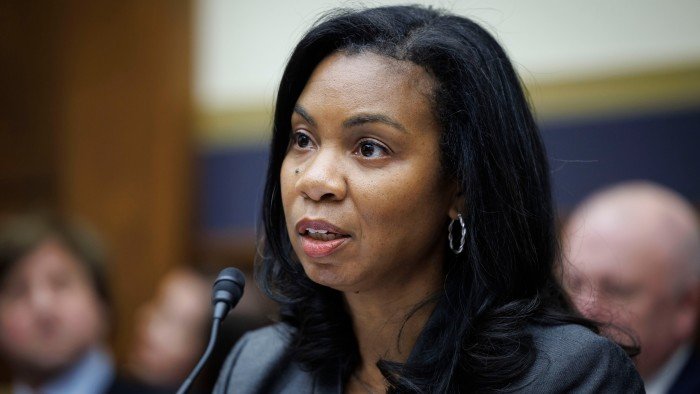Unlock the White House Watch newsletter for free
Your guide to what Trump’s second term means for Washington, business and the world
The US audit regulator created in the wake of the Enron scandal has been granted a reprieve after the Senate parliamentarian ruled that Republicans’ plan to shutter the agency as part of their giant tax and spending bill would violate Senate rules.
Republicans had planned to scrap the Public Company Accounting Oversight Board and hand its powers to inspect and fine audit firms to the Securities and Exchange Commission, a measure they said would save money for taxpayers and the listed companies that pay fees to fund the agency.
But the Senate parliamentarian, which advises on rules for the upper chamber, said the plan did not comply with requirements that only measures that affect the US budget can be included in the legislation.
The parliamentarian also axed measures that would have defunded the Consumer Financial Protection Bureau, cut the pay of officials at the Federal Reserve and reduced spending on the Treasury’s office of financial research. The CFPB did not immediately respond to a request for comment.
Tim Scott, chair of the Senate banking committee, which had advanced the measures, said he would continue working with the parliamentarian and was “committed to advancing legislation that cuts waste and duplication in our federal government”.
The committee’s top Democrat, senator Elizabeth Warren, cheered the decision in a post on X.
“These proposals are a dangerous attack on consumers that would lead to more Americans being cheated by big companies and risk our nation’s financial stability — all to hand out tax breaks to billionaires,” Warren wrote.
The PCAOB is responsible for inspecting accounting firms in the US and overseas that audit companies listed on US exchanges, and it had argued the SEC would not have the budget or the expertise to take over these functions. It also argued its elimination would not save taxpayers money because it is funded by a levy on public companies.
Under chair Erica Williams, the agency has imposed record fines on audit firms while facing criticism from some in the profession that it has focused unfairly on minor infractions. It has also been accused of failing to take account of audit groups’ views when setting tough new standards.
Williams welcomed the ruling on Friday. “This is good news for millions of Americans whose retirement savings and investments would be put at risk by eliminating the PCAOB,” she said.
However, Republicans could return with separate legislation to eliminate or reform the agency. The House financial services committee will next week hold a hearing entitled “Reassessing Sarbanes-Oxley: the cost of compliance in today’s capital markets”, referring to the 2002 legislation that created the PCAOB.
Paul Atkins, the Trump administration’s new chair of the SEC, is a longtime critic of the PCAOB and his regulator could also impose reforms because it has the power to remove Williams and other board members and must approve the agency’s rules.
Senate Democrats welcomed the parliamentarian’s rulings, including the reprieve for the CFPB, another longtime target of Republicans’ desire to curb the cost of regulation for businesses. The Senate bill would have neutered the agency, which oversees consumer finance products and retail banking by cutting its funding to 0 per cent of the Fed’s budget.
“The CFPB has returned over $21bn to American consumers by holding big banks and predatory lenders accountable,” Senate minority leader Chuck Schumer said. “Republicans’ attempt to gut it was nothing more than a gift to the wealthy and well-connected, at the expense of working families.”
Additional reporting by Stefania Palma in Washington
